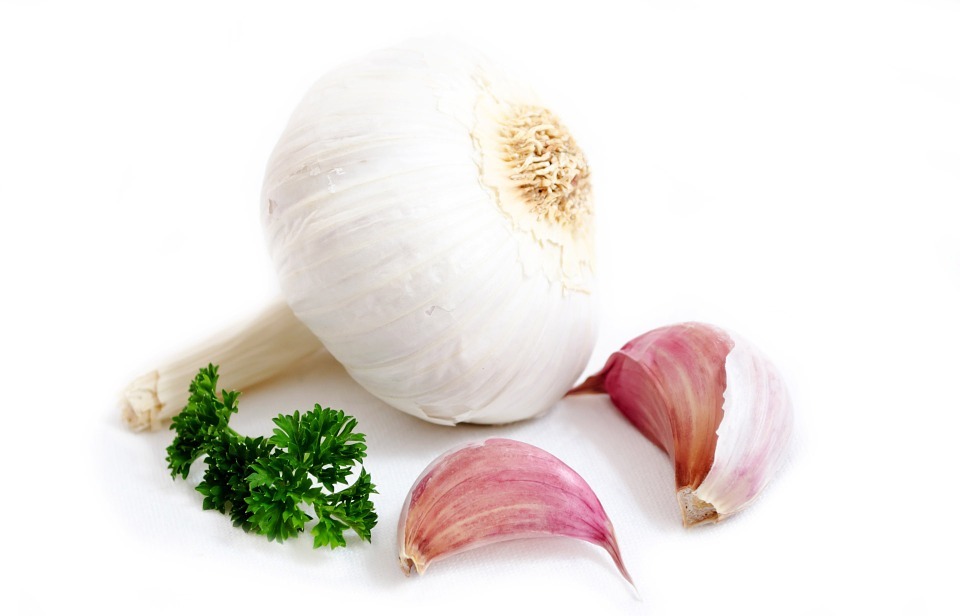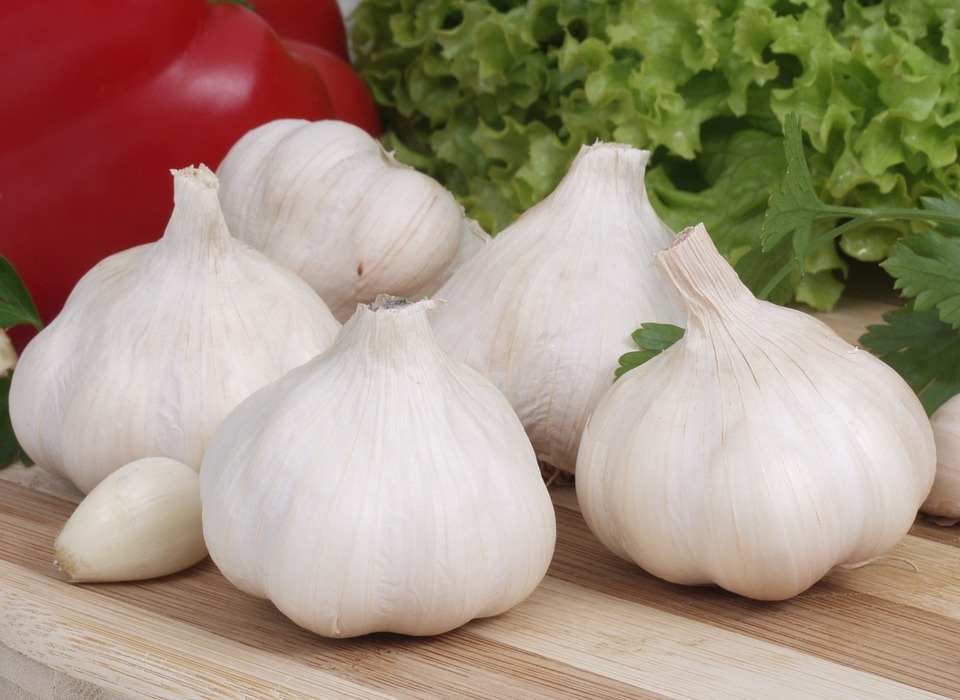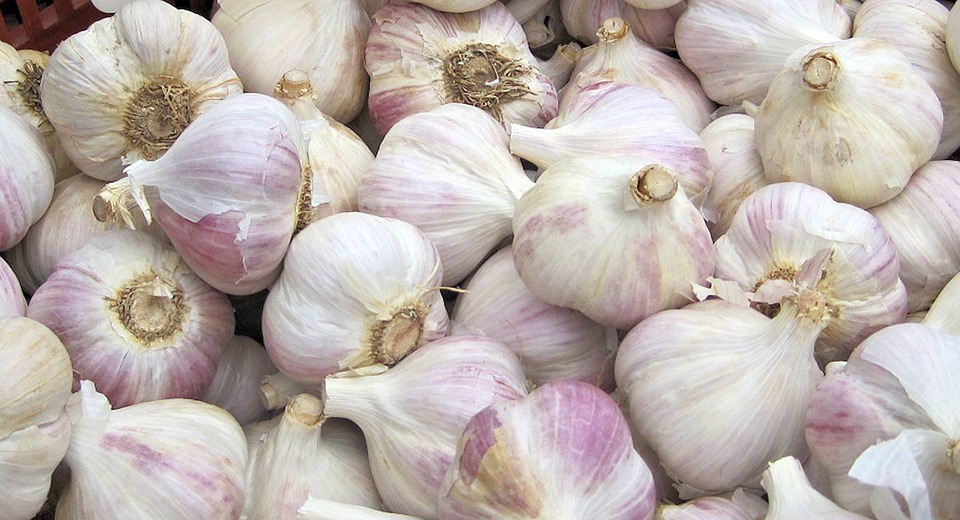This article delves into the complex relationship between dogs and garlic, exploring the potential benefits and risks associated with this pungent ingredient. We'll examine the nutritional value of garlic, its potential health advantages for humans, and the serious dangers it poses to our canine companions. We'll provide a detailed overview of garlic poisoning in dogs, covering its causes, symptoms, and treatment options. We'll also address the role of garlic in commercial and homemade dog food, debunking common misconceptions. Finally, we'll answer frequently asked questions to address any lingering concerns you may have regarding garlic and your furry friend.
Part 1: Garlic's Nutritional Profile: A Culinary Powerhouse

1.1 Nutritional Breakdown: A Rich Source of Vitamins and Minerals
- Garlic boasts a diverse nutritional profile, containing various vitamins and minerals essential for human health.
- It is a rich source of vitamin C, a powerful antioxidant that supports immune function and collagen production.
- Garlic is also packed with vitamin B6, crucial for brain function, hormone production, and red blood cell formation.
- It's a good source of manganese, a mineral that contributes to bone health, wound healing, and blood sugar regulation.
- Garlic also provides a decent amount of selenium, an antioxidant that protects cells from damage and supports thyroid function.
1.2 Beyond Vitamins: The Power of Allicin
- Garlic's potent properties are largely attributed to allicin, a sulfur-containing compound released when garlic is crushed or chopped.
- Allicin is known for its antibacterial and antifungal properties, making garlic a natural remedy for infections and food preservation.
- Research suggests allicin may also possess anti-inflammatory effects, contributing to its potential health benefits.
1.3 Potential Health Benefits for Humans: A Long History of Use
- Garlic has been used for centuries in traditional medicine for its purported health benefits.
- Studies suggest garlic may help boost the immune system, reduce the risk of colds and flu, and fight infections.
- Research also indicates garlic may improve cardiovascular health by lowering blood pressure and reducing cholesterol levels.
- Some studies have shown a potential link between garlic consumption and a reduced risk of certain types of cancer, though more research is needed.
Part 2: Garlic and Dogs: A Complicated Relationship

2.1 The Risks of Garlic for Dogs: A Silent Threat
- While garlic offers potential benefits for humans, it poses a significant threat to dogs.
- Garlic contains a compound called thiosulphate, which is highly toxic to dogs, even in small amounts.
- Thiosulphate breaks down red blood cells, leading to anaemia, a condition characterized by a deficiency of red blood cells.
- Garlic toxicity can also cause gastrointestinal distress, including vomiting, diarrhoea, and abdominal pain.
- In severe cases, garlic poisoning can lead to organ damage, respiratory distress, and even death, particularly in small breeds or puppies.
2.2 Recognizing the Signs: Symptoms of Garlic Poisoning in Dogs
- Early detection is crucial for effective treatment. If you suspect your dog has ingested garlic, watch for the following symptoms:
- Gastrointestinal upset: Vomiting, diarrhoea, abdominal pain, loss of appetite.
- Weakness and lethargy: Your dog may appear tired, sluggish, and uninterested in its surroundings.
- Pale gums: This is a sign of anaemia, which can be caused by garlic poisoning.
- Rapid breathing and heart rate: This can indicate a decrease in oxygen levels due to damage to red blood cells.
- Increased thirst: Your dog may drink more water than usual to compensate for dehydration caused by vomiting and diarrhoea.
- Coma (in severe cases): This is a serious sign of severe garlic poisoning and requires immediate veterinary attention.
2.3 Factors Affecting Toxicity: Understanding the Risks
- The severity of garlic poisoning depends on several factors, including:
- Amount ingested: The larger the amount of garlic consumed, the more severe the symptoms.
- Dog's size and weight: Smaller dogs are more susceptible to garlic toxicity due to their smaller body size.
- Dog's overall health and breed: Dogs with pre-existing health conditions may be more vulnerable to garlic poisoning.
- Form of garlic: Fresh garlic, cooked garlic, and garlic powder all contain thiosulphate and pose a risk to dogs.
Part 3: Preventing Garlic Poisoning: Keeping Your Dog Safe

3.1 Strict Avoidance: A Fundamental Rule
- The most effective way to prevent garlic poisoning is to avoid giving garlic to your dog altogether.
- Never intentionally feed garlic to your dog, even in small amounts.
- Keep garlic and garlic-containing foods out of reach of your dog at all times.
3.2 Be Mindful of Hidden Garlic: A Common Overlooked Threat
- Garlic is often a hidden ingredient in various foods and products.
- Read food labels carefully, especially those for commercial dog food, and avoid any products containing garlic or onion powder.
- Be cautious with leftovers, as they may contain garlic or other toxic ingredients for dogs.
- Train your dog to avoid scavenging for food scraps, especially those containing garlic or onions.
3.3 Seeking Veterinary Advice: Prompt Action is Crucial
- If you suspect your dog has ingested garlic, contact your veterinarian immediately.
- Don't wait for symptoms to develop; prompt veterinary attention is crucial for minimising the risk of complications.
- Your veterinarian can assess the situation and provide appropriate advice or treatment, depending on the amount ingested and the dog's condition.
Part 4: Garlic and Dog Food: A Matter of Controversy
4.1 Commercial Dog Food: Navigating the Ingredients
- Some commercial dog foods may contain small amounts of garlic, usually in the form of garlic powder.
- These amounts are generally considered safe for dogs when included in a balanced diet, but it's essential to read the label carefully and choose brands that don't list garlic as an ingredient.
- Look for dog food that specifically states "garlic-free" to ensure your dog is not exposed to this potential toxin.
4.2 Homemade Dog Food: Avoiding Garlic and Onions
- If you're making homemade dog food, avoid adding garlic or any garlic-containing ingredients, including garlic powder.
- Stick to safe and nutritious ingredients specifically recommended for dogs, such as meat, vegetables, and grains.
- Consult with a veterinarian or certified canine nutritionist to create a balanced and healthy homemade diet for your dog.
Part 5: Garlic in Traditional Dog Medicine: Debunking Myths
5.1 Limited Evidence: A Lack of Scientific Support
- There is limited scientific evidence to support the use of garlic in traditional dog medicine.
- Many claims about garlic's medicinal benefits for dogs are anecdotal and lack rigorous research.
- It's crucial to rely on evidence-based information and avoid using garlic for medicinal purposes without consulting a veterinarian.
5.2 Potential Benefits: A Closer Look at Claims
- Some proponents believe garlic can help repel fleas and ticks, but there is no scientific evidence to support this claim.
- Others suggest garlic may have antifungal and antibacterial properties that can benefit the immune system, but these claims need further research and scientific validation.
5.3 Consult a Veterinarian: Prioritising Your Dog's Health
- If you're considering using garlic for medicinal purposes for your dog, consult your veterinarian.
- They can provide safe and effective alternatives based on your dog's individual needs and health history.
- Always rely on your veterinarian's expertise for any health concerns related to your dog.
Part 6: Garlic Supplements for Dogs: A Cautious Approach
6.1 Limited Safety Data: A Lack of Information
- There is limited safety data available for garlic supplements specifically formulated for dogs.
- These supplements may contain concentrated levels of garlic, increasing the risk of toxicity.
- The lack of comprehensive safety data makes it difficult to determine the potential risks and benefits of using garlic supplements for dogs.
6.2 Potential Risks: Similar to Garlic Itself
- Garlic supplements can cause the same health problems as garlic itself, including gastrointestinal upset, anaemia, and damage to red blood cells.
- Due to the potential risks and lack of safety data, it's best to err on the side of caution and avoid giving garlic supplements to your dog.
6.3 Avoiding Supplements: Seeking Safe Alternatives
- It's best to avoid giving garlic supplements to your dog, even if they are marketed as being safe for dogs.
- Consult your veterinarian for safe and effective alternatives to address any health concerns you have for your dog.
- Always prioritize your dog's health and well-being by choosing evidence-based treatments and supplements recommended by your veterinarian.
Part 7: Onions and Garlic: Similar Risks, Similar Precautions
7.1 Onion Toxicity: A Close Cousin
- Onions are also highly toxic to dogs, containing the same harmful compound (thiosulphate) as garlic.
- Symptoms of onion poisoning are similar to those of garlic poisoning and can be just as severe.
- It's crucial to avoid giving onions to your dog in any form.
7.2 Avoiding Onions: Staying Vigilant
- Keep onions and onion-containing products out of reach of your dog.
- Be mindful of hidden onions in food and leftovers, as even small amounts can be toxic.
- Train your dog to avoid scavenging for food scraps, especially those containing onions.
Part 8: FAQs About Garlic and Dogs: Addressing Common Concerns
8.1 Can I give my dog garlic powder?
No, garlic powder is just as toxic to dogs as fresh garlic. Even a small amount can cause serious health problems. Garlic powder contains concentrated levels of thiosulphate, making it particularly dangerous for dogs.
8.2 Is garlic in dog food safe?
While some commercial dog foods may contain small amounts of garlic powder, it's always best to read the label carefully and avoid products that list garlic as an ingredient. Choose brands that specifically state "garlic-free" to ensure your dog is not exposed to this potential toxin.
8.3 What if my dog ate garlic?
If you suspect your dog has ingested garlic, contact your veterinarian immediately. They can assess the situation and provide appropriate advice or treatment. Don't wait for symptoms to develop; prompt veterinary attention is crucial for minimizing the risk of complications.
8.4 Can I use garlic to repel fleas and ticks?
There is no scientific evidence to support the use of garlic for flea and tick control. Consult your veterinarian for safe and effective methods to protect your dog from parasites. There are many proven and safe treatments available, such as topical insecticides or oral medications.
8.5 Can I give my dog garlic for its immune system?
There is no scientific evidence to support the use of garlic to boost the dog's immune system. Consult your veterinarian for safe and effective ways to support your dog's health and well-being. A balanced diet, regular exercise, and appropriate vaccinations are key to maintaining a healthy immune system in dogs.
8.6 Is cooked garlic less toxic than raw garlic?
While cooked garlic may have a lower concentration of the harmful compound, it's still toxic to dogs. It's best to avoid feeding garlic to your dog in any form, whether cooked or raw.
8.7 What is the best treatment for garlic poisoning?
Treatment for garlic poisoning will depend on the severity of the case and the dog's overall health. Your veterinarian may recommend induced vomiting, activated charcoal, intravenous fluids, and other supportive care. They may also monitor your dog's blood cell count and administer medications to treat anemia or other complications.
8.8 Can garlic be fatal to dogs?
Yes, garlic poisoning can be fatal, especially in small dogs or puppies. Prompt veterinary attention is crucial to minimize the risk of complications. If you suspect your dog has ingested garlic, seek immediate veterinary care to increase their chances of survival.
In conclusion, while garlic may offer some potential benefits for humans, it poses serious risks to dogs. It's essential to avoid feeding garlic to your canine companion in any form and to be mindful of hidden garlic in food and other products. If you suspect your dog has ingested garlic, contact your veterinarian immediately for guidance and treatment. By understanding the dangers of garlic and taking preventive measures, you can ensure the safety and well-being of your beloved pet.
Everyone is watching
-

Can Dogs Eat Bananas? A Guide to Safe Treats
DOGS & PUPPIESThis comprehensive guide will delve into the world of canine nutrition, focusing on the popular question: can ...
-

Can Dogs Eat Oranges? (Is It Safe or Toxic?)
DOGS & PUPPIESThis article delves into the question of whether dogs can safely consume oranges. We'll explore the nutrition...
-

Can Dogs Eat Grapes? The Shocking Truth About This Fruit
DOGS & PUPPIESThis article delves into the controversial topic of grapes and dogs, exploring the potential dangers associate...
-

Why Do Dogs Eat Poop? Understanding Coprophagia in Dogs
DOGS & PUPPIESThis article delves into the perplexing phenomenon of coprophagia, the act of eating faeces, in dogs. We explo...
-

Can Dogs Eat Shrimp? A Guide to Safety and Risks
DOGS & PUPPIESThis comprehensive guide dives into the world of shrimp and dogs, exploring the potential benefits and risks a...
